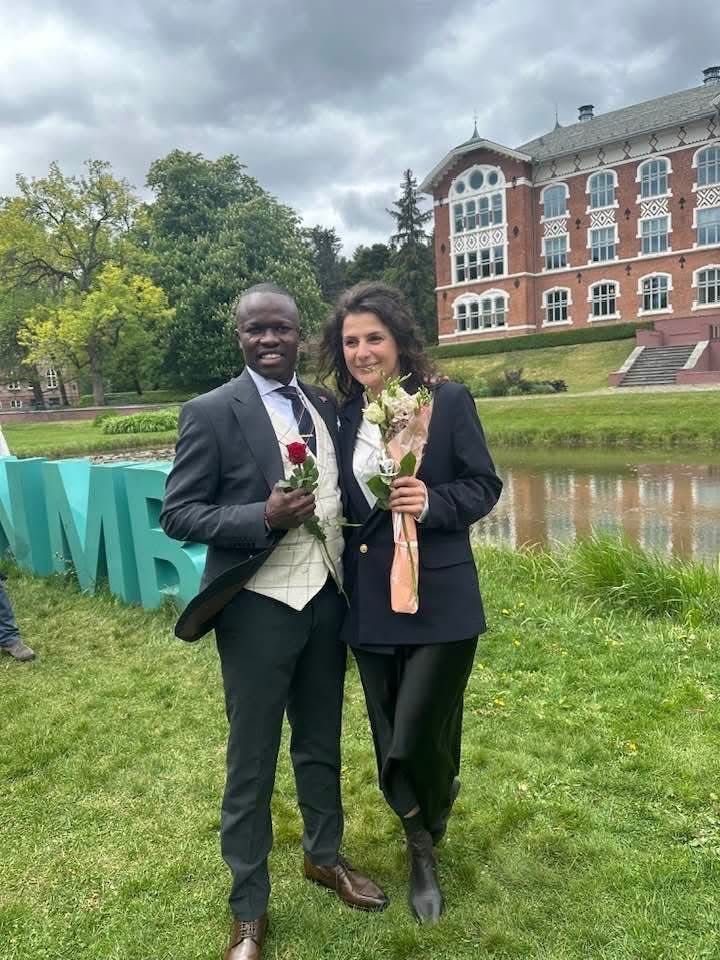Matrimonial Property Explained: Why You Can’t Take Back a Gift or Evict Your Partner

Renowned lawyer Danston Omari has addressed one of the most misunderstood aspects of family law in Kenya, matrimonial property and post-divorce entitlements.
The discussion on Court Helicopter News focused on the legal framework governing property acquired during marriage and the rights of spouses following separation or divorce.
Matrimonial Property Law in Kenya
Kenyan law defines matrimonial property as assets acquired during the course of a marriage, whether through direct financial contribution or indirect support such as homemaking or child-rearing.
These assets are jointly owned and cannot be sold, transferred, or mortgaged without the informed and written consent of both spouses.
The law is unambiguous in its protection of such property, recognizing the equal stake each partner holds in the union’s material gains.
To prevent unauthorized transactions, the law empowers spouses to place a caution or caveat on matrimonial property through the relevant registrars.
This legal safeguard ensures that no sale or transfer can proceed without mutual agreement.
Financial institutions are also bound by this provision; issuing loans against matrimonial property without spousal consent is a violation that has led to numerous court losses for banks.
“You cannot go to a bank and get a loan from a property that is matrimonial without your wife giving a consent. You cannot take money from any financial institution without a consent of the spouse.”
Eviction from Matrimonial Home
The issue of eviction from the matrimonial home is similarly addressed with firm legal boundaries.
The law prohibits one spouse from evicting the other during the subsistence of the marriage unless a court order is obtained.
“A spouse shall not during the subsistence of the marriage be evicted from the matrimonial home by or at the instance of the other spouse except by the order of the court.”
This protection applies regardless of ownership or financial contribution, underscoring the principle that the matrimonial home is a shared space and, more importantly, a trust held for the benefit of the children born of the marriage.
Gifts Exchange Between Spouses
According to Lawyer Danston Omari, the most misunderstood aspect of matrimonial property law pertains to gifts exchanged between spouses.
Under Section 15 of the Matrimonial Property Act, any property given as a gift during marriage is presumed to belong absolutely to the recipient.
This legal presumption means that once a gift is given, be it a vehicle, a house, or even payment for education, it cannot be reclaimed after the relationship ends.
The law does not entertain claims for reimbursement or repossession of such gifts, regardless of the circumstances surrounding the separation.
Property Division Upon Divorce
Omari reminded Kenyans that property division upon divorce is guided by the principles of direct and indirect contribution.
Assets registered under companies or held in trust are excluded from this division, as are properties inherited and registered outside the marital framework.
He concluded by saying that the legal explanation serves as a timely reminder that matrimonial property law in Kenya is designed to protect fairness and dignity within marriage and beyond.
It calls for vigilance, informed consent, and respect for the legal rights of both partners, ensuring that emotional disputes do not override statutory protections.
Divorce in Kenya
Kenya is experiencing a sharp rise in marital breakups, according to the latest national data.
The KDHS 2022 shows that 9.3% of women aged 15–49 are divorced or separated, nearly double the rate three decades ago.
The KNBS Vital Statistics Report 2024 confirmed the upward trend, while the Judiciary records indicate over 7,000 divorce cases were filed in the most recent year.
Currently, 5.5% of households are headed by divorced or separated individuals, highlighting shifting family structures and evolving social attitudes toward marriage.





